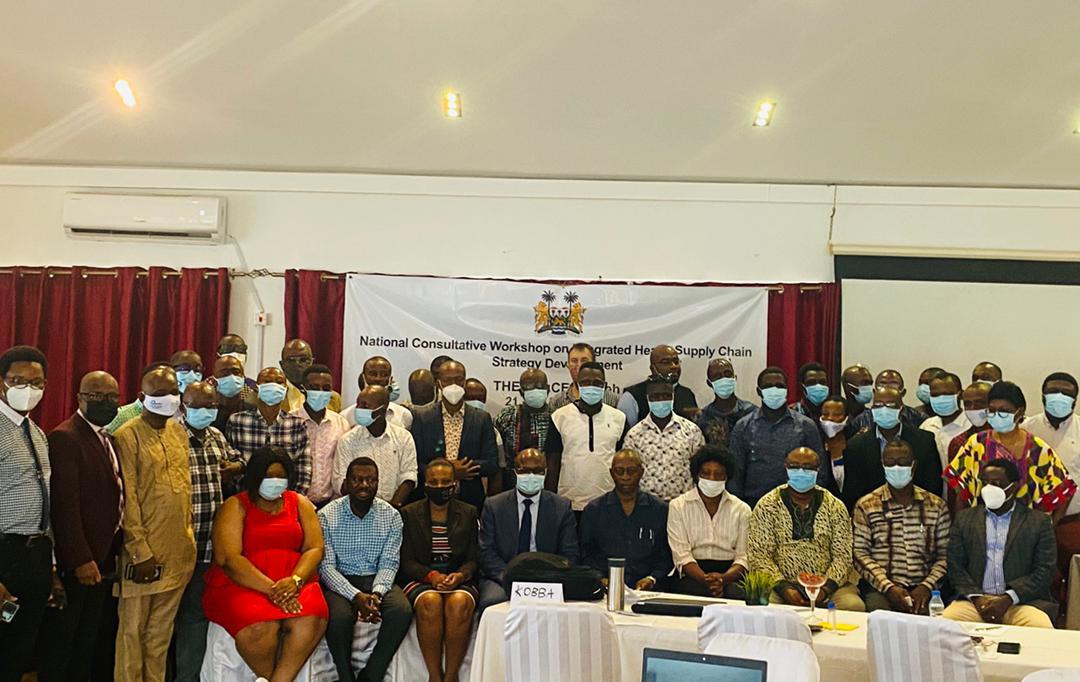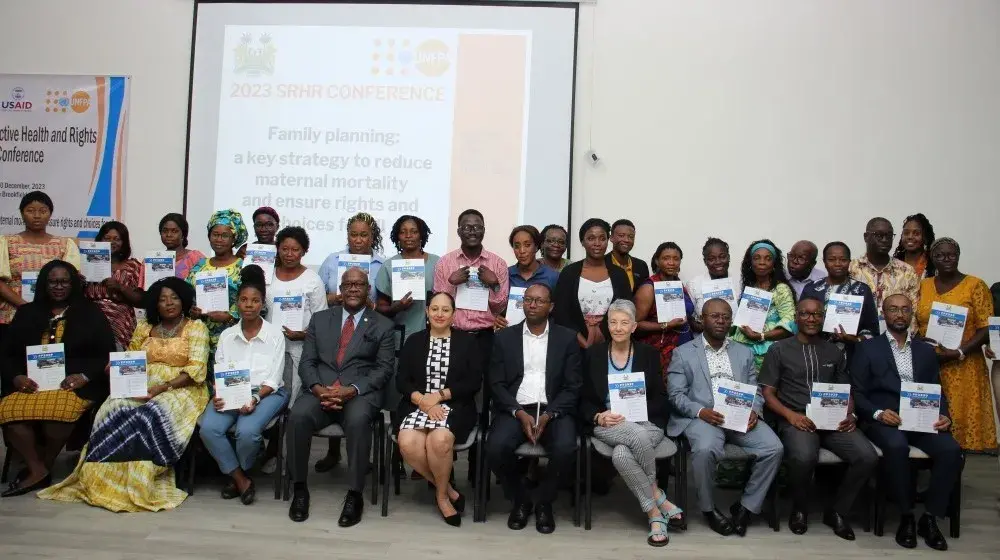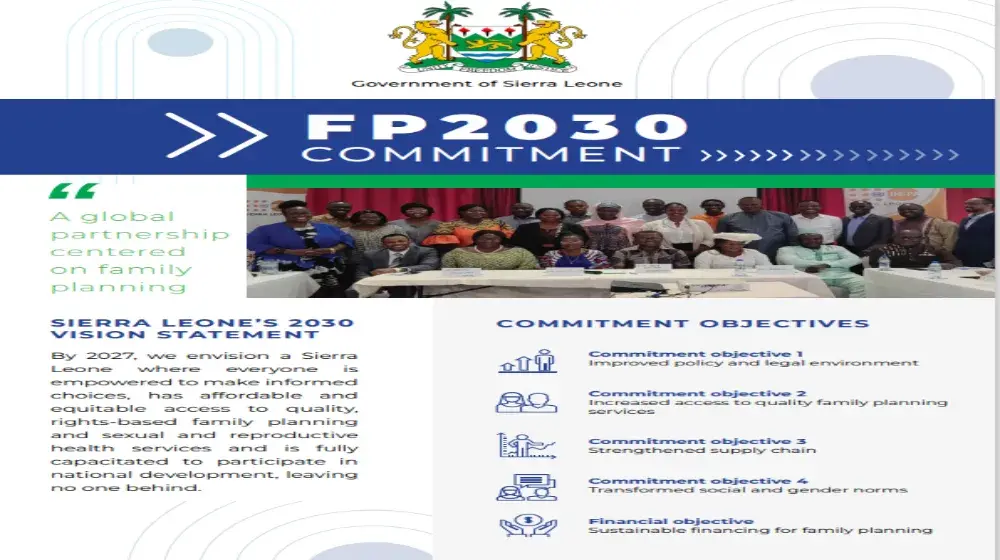FREETOWN, 24 June 2021- With funding from the UK’s Foreign, Commonwealth & Development Office and UNFPA supplies programme, the United Nations Population Fund (UNFPA) in Sierra Leone has supported the Ministry of Health and Sanitation (MOHS) in developing a national integrated health supply chain strategy which will serve as a guideline for priority areas over the next five years to all supply chain players in the country.
The development of the National Health Supply Chain Strategic Plan, by the Government of Sierra Leone through the Ministry of Health and Sanitation, is intended to guide the full realization of several policy guides and sector strategic plan objectives requiring a strong public health supply chain.
The plan will help guide investments and coordinate the efforts of all stakeholders involved in the country’s health supply chain space. It will also serve as a roadmap to guide the MOHS; the Directorate of Pharmaceutical Services (DPS) and the National Medical Supplies Agency (NMSA) to reaffirm the health supply chain strategies and means of achieving its desired outcomes within a specified timeframe.
Reproductive Health Commodity Security, a key component to the national health supply chain strategy, plays a critical role in ensuring that Sierra Leone achieves its national health goals as contained in the Medium Term National Development Plan, the Sustainable Development Goals, and the ICPD commitments.
Speaking on Monday 21 June at the start of a five-day national consultative workshop at Tokeh on the development of a national integrated health supply chain strategy, UNFPA’s Technical Specialist on Maternal Health/Midwifery Dr. Stephen Mupeta said the availability of life saving maternal and child health related medicines and supplies to the last mile depended largely on a robust and well-functioning supply chain management system.
Dr. Mupeta said, “A national integrated supply chain strategy should serve as a common framework for well-coordinated, well aligned, and harmonized planning, implementation, performance monitoring and reporting of supply chain interventions that ensure delivery of pharmaceuticals and health technology products to those in need.”
He called for enhanced data management to inform effective planning and program implementation along the entire length of the supply chain system, rational medicines use, and strengthened coordination mechanisms as reflected in the National Health Sector Strategic Plan and the National Medicines Policy.
Speaking at the event the Managing Director, National Medical Supplies Agency in the Ministry of Health and Sanitation, Dr. Lawrence A. Sandi said “there has been significant work in the development of this strategic plan in a phased-out approach. Phase one which is now complete was more focused on a diagnostic analysis of the current status of the country’s national supply chain landscape, identifying critical priority areas that would form the basis for strategic planning. Phase two of this strategic planning work had some components focused on field data collection exercise to complement the diagnostic analysis of Phase one.”
Philip Wambua from the Foreign, Commonwealth, and Development Office (FCDO) said FCDO was very excited to be part of the process in the development of an integrated health supply chain strategy and was confident that the strategy would be functional.
He stated that FCDO was hopeful that “this would be an evidence-based strategy. Sometimes it is possible to develop strategies where you have not clearly identified the bottlenecks. So we are hoping that this is a process where we have identified the bottlenecks across the entire chain.”
Also speaking at the opening ceremony were the Chief Pharmacist Jack Lansana and Dr. Satie Kanneh, deputy Chief Medical Officer, Ministry of Health and Sanitation.
###
About the United Nations Population
UNFPA is the United Nations sexual and reproductive health agency. Our mission is to deliver a world where every pregnancy is wanted, every childbirth is safe and every young person's potential is fulfilled.
For more information, contact:
John Baimba Sesay
Web and Media Analyst
Email: jsesay@unfpa.org
Tel: +232 30953193/ +23279369395





